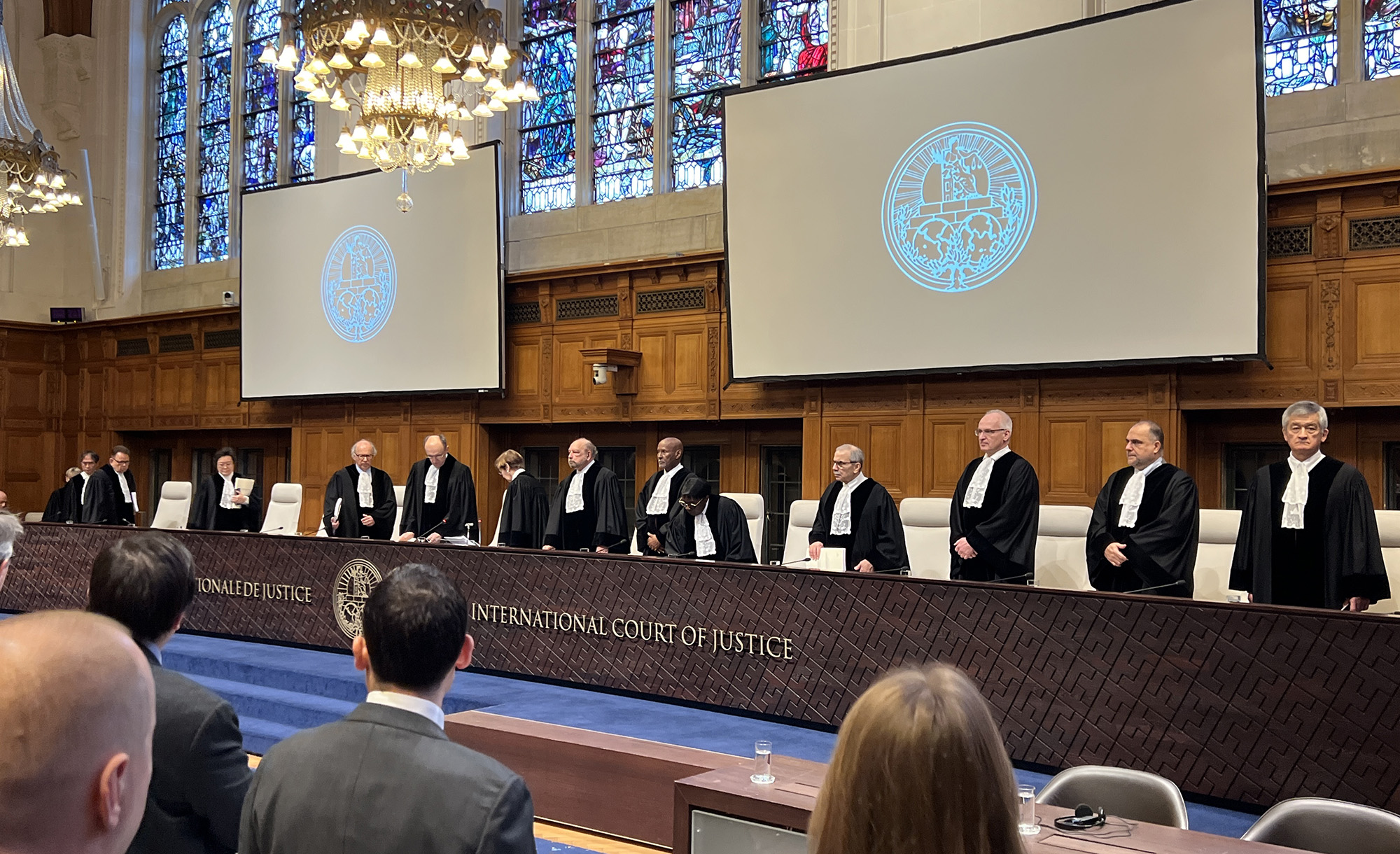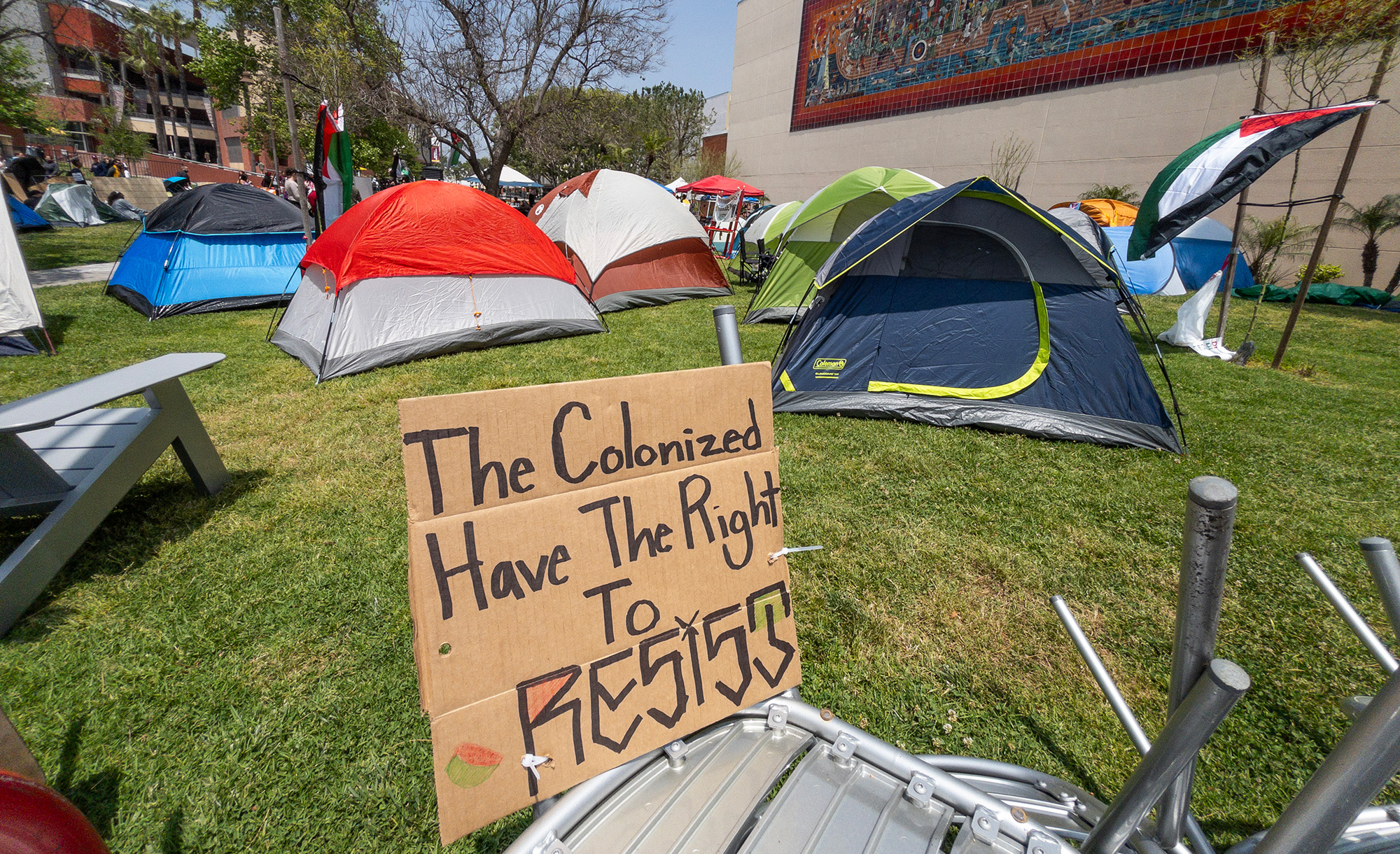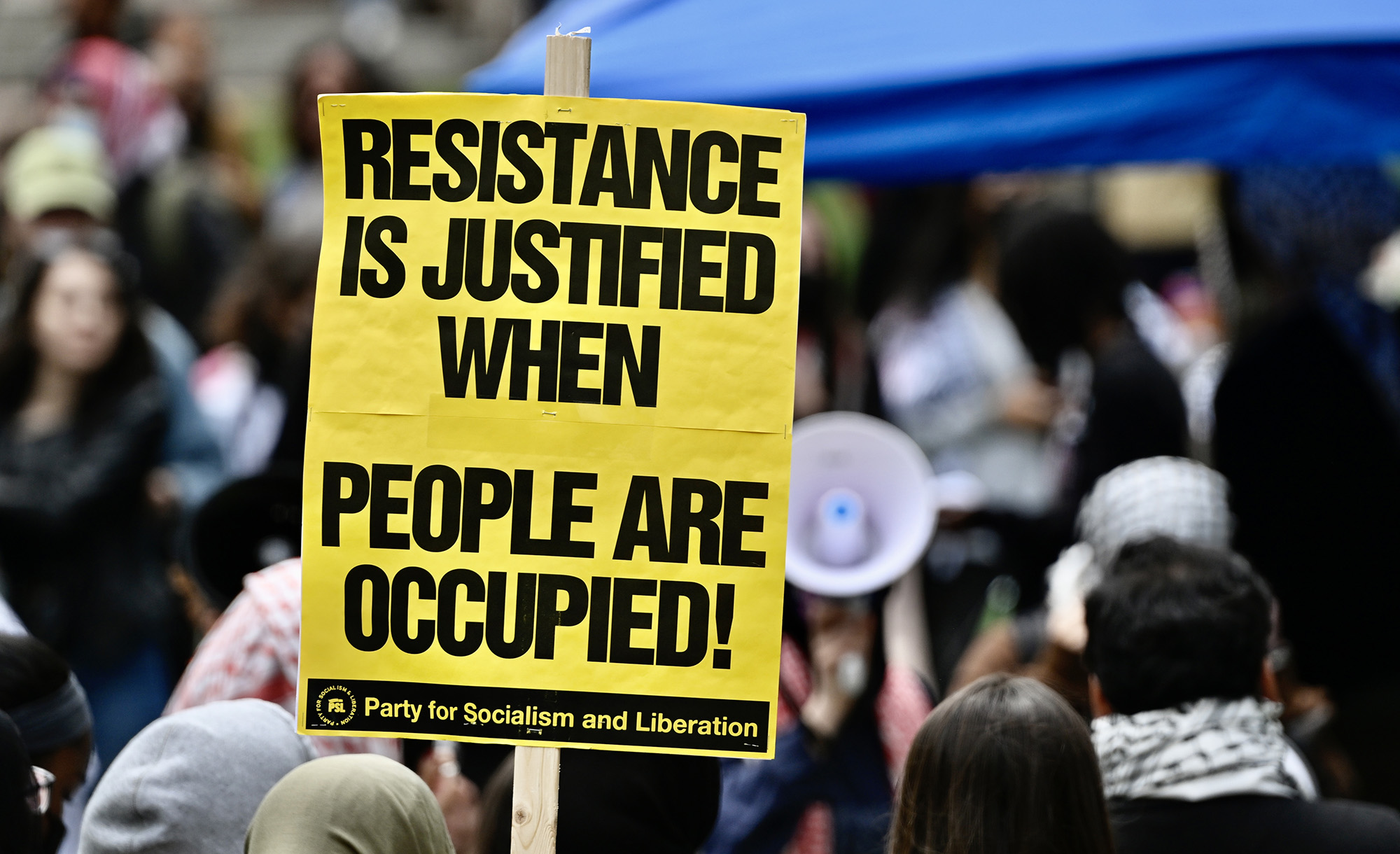Got a question for Philologos? Ask him yourself at [email protected].
The International Court of Justice’s January 19 decision that found, by a vote of 15-2, accusations of genocide against Israel sufficiently “plausible” to warrant a thorough investigation is one more hardly needed bit of evidence of how foolish and detached from reality supposedly intelligent legal minds can be. The fact that, in rendering their 27-page verdict, the judges did not once refer to the lengthy arguments presented to them in Israel’s defense says all that needs to be said about the level of their deliberations.
Nowhere was this level demonstrably lower than in paragraphs 51-53 of the Court’s decision, which dealt with the allegedly “genocidal and dehumanizing rhetoric coming from senior Israeli officials” in regard to the war in Gaza. Three examples of such rhetoric were actually cited by the court, all in Paragraph 52. Let’s take a look at them.
One of these was a statement by Yisrael Katz, Israel’s minister of energy and infrastructure, in which he was quoted as having posted on X (formerly Twitter) on October 13: “We will fight the terrorist organization Hamas and destroy it. All the civilian population in Gaza is ordered to leave immediately. We will win. They will not receive a drop of water or a single battery until they leave the world.”
This quote is accurate, although by omitting its opening sentences, i.e., “We have to draw the line. We will not tolerate murdering children and burning families,” the court chose to ignore, as it did in most of its verdict, the events to which Israel was responding when it went to war in Gaza. The court also failed to observe that it was Hamas, not the civilian population of the Gaza Strip, that Katz said Israel would “destroy”; that Katz, without having the ministerial authority to do so, was “ordering” this population to leave not the entire Strip (something that would not have been physically possible) but the city of Gaza and its environs, which were being subjected to heavy bombardment prior to an Israeli ground operation; and that the “they” of the last sentence also referred to Hamas alone, since there would have been no need to tell anyone to leave Gaza City if they were in any case about to leave the world.
Paragraph 52’s second example was an October 12 statement by Israel’s president Isaac Herzog in which he said:
It is an entire nation out there [in the Gaza Strip] that is responsible. It is not true, this rhetoric about civilians not [being aware], not [being] involved. It is absolutely not true. They could have risen up. They could have fought against that evil regime [of Hamas] which took over Gaza in a coup d’etat. But we are at war. We are at war. We are at war. We are defending our homes. We are protecting are homes. That’s the truth. And when a nation protects its home, it fights. And we’ll fight until we break their backbone.
Herzog’s attribution to all Gazans of responsibility for Hamas’s actions, and his call to “break their backbone,” were considered potentially “genocidal rhetoric” by the judges of Hague. Yet quite apart from the question of whether it was fair to hold all the inhabitants of Gaza responsible for the actions of their government, is it too much to expect fifteen jurists to realize that an attribution of responsibility is not a call for a specific punishment, or indeed, for any punishment at all? Was it beyond their linguistic ability to understand that “breaking the backbone” of something or someone is, in Hebrew, English, and other languages, a metaphorical expression that does not indicate an intention to fracture anyone’s vertebrae?
The last of the three examples in Paragraph 52 is a much-quoted remark by Yoav Gallant, Israel’s defense minister. Speaking to soldiers on October 9, Gallant said:
You saw what we are fighting against. We are fighting human animals. This [Hamas] is the ISIS of Gaza. . . . Gaza won’t return to what it was before. There will be no Hamas. We will eliminate everything. If it doesn’t take one day, it will take a week. It will take weeks, or even months, and we will reach all places.”
Gallant’s reference to “human animals,” repeated ad nauseam in the media as proof of the racist contempt Israelis have for Palestinians, was of course no such thing. Only a willful misreading of what he said could take it to refer to Palestinians in general rather than to Hamas members, and if the judges of Hague thought this a poor choice of words with which to describe armed men who gunned down hundreds of defenseless families and partygoers, burned babies, murdered children in front of their parents and parents in front of their children, and gang-raped women before executing them, they are welcome to suggest better ones. Personally, I agree that Gallant should have spoken differently. Few animals kill other animals for the sheer pleasure of killing them, nor do many rape or mass-murder their fellow beings. Gallant owes the animal world an apology for his comparison.
I am being, of course, sarcastic. But it is hard not to be sarcastic about Judges Donoghue, Gevorgian, Tomka, Abraham, Bennouna, Yusuf, Xue, Bhandari, Robinson, Salam, Iwasawa, Charlesworth, Nolte, Brant, and Moseneke, none of whom seems to have had a clue about what Israel went through on October 7 or the slightest appreciation of the emotions this aroused. Gallant, Herzog, and Katz’s remarks, which apparently constituted the most severe “genocidal rhetoric” on the part of Israeli leaders that the court was able to find, were all made in the second week of October when Israel was still in the throes of unprocessed grief, rage, and revulsion over what had happened. One wonders whether any of the judges considered what they themselves might have said immediately following the sadistic killing and mutilation of their own wives, husbands, sons, and daughters, and how they might have reacted to then being put on trial for incitement to violence against the perpetrators.
International law has long had a reputation for having nothing to do with the actual world. The fifteen judges of The Hague have confirmed that this reputation is well-deserved. One wouldn’t trust them to try an accused shoplifter in Wichita, much less a nation fighting for its safety, honor, and integrity.
Got a question for Philologos? Ask him yourself at [email protected].
More about: Gaza War 2023, Israel & Zionism







